Dr. Yijin Liu
Lead Scientist
Stanford Synchrotron Radiation Lightsource
SLAC National Accelerator Laboratory
Date: May 17, 2023
Time: 1300–1400h ET
Dr. Yijin Liu
Lead Scientist
Stanford Synchrotron Radiation Lightsource
SLAC National Accelerator Laboratory
Date: May 17, 2023
Time: 1300–1400h ET
The ECS Detroit Section invites you to “Sustainable Battery Components from Rice Hull Ash (RHA),” presented by Professor Richard Laine at the Mercedes-Benz Research & Development North America location on May 10, 2023, at 1800h ET.
Students are encouraged to present posters. Up to three posters will be presented at the event. The first three students contacting the section at ecs.detroit.rsvp@gmail.com about presenting their work receive USD $100 and one year of free access to ECS Detroit Section events.
(more…)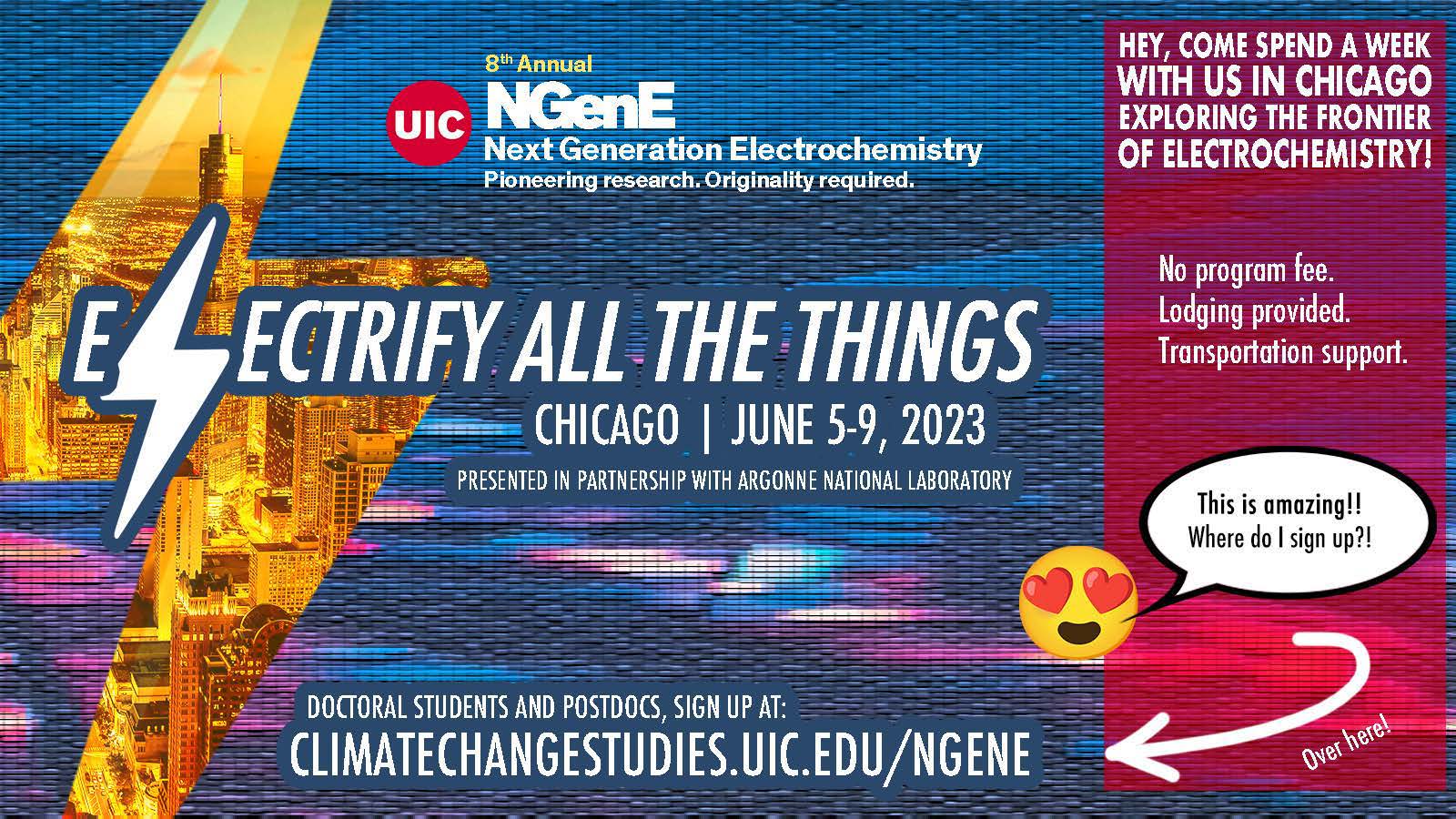
The 8th Annual Next Generation Electrochemistry (NGenE) meeting takes place in person from June 5-9, 2023, at the University of Illinois at Chicago.
NGenE organizers invite doctoral students and postdoc researchers working in electrochemistry to apply for this intense exploration of the frontiers of electrochemistry. The program is free to those admitted. Lodging and transportation support are provided free of charge.
ECS is proud to sponsor the event, which is presented in partnership with the Argonne National Laboratory.
Apply nowThe Electrochemical Society hosted Dr. Reza Nazemi’s live webinar, “Designing materials and systems for decarbonizing chemicals and water industries,” on March 15, 2023. Dr. Nazemi took audience questions during a live Question and Answer session at the end of the presentation. He kindly answered, in writing, questions not answered during the broadcast. Find these responses below.
View Dr. Reza Nazemi’s Webinar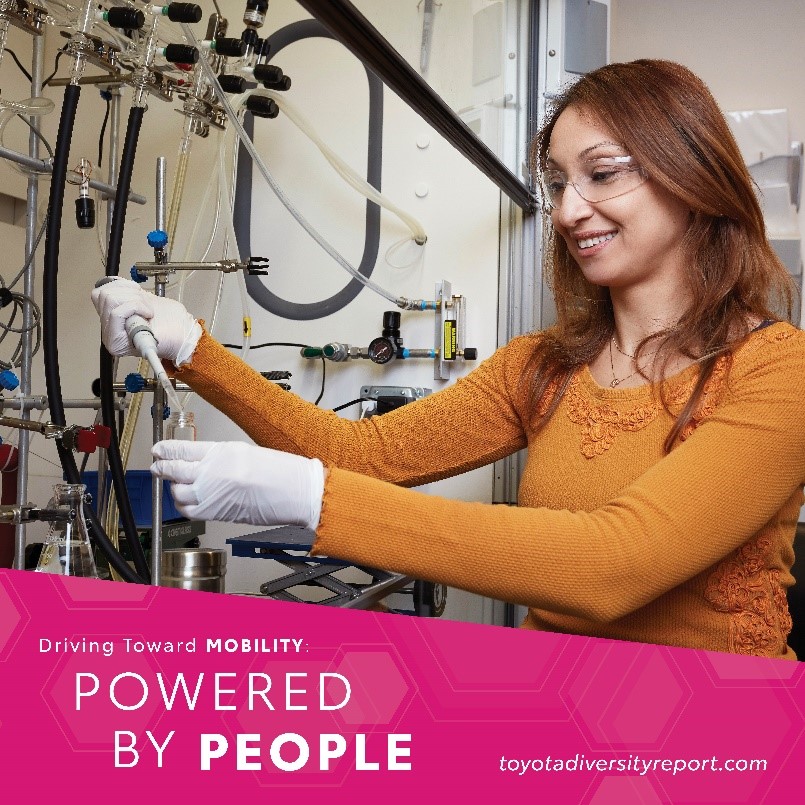 Register for Dr. Rana Mohtadi’s April 19 presentation
Register for Dr. Rana Mohtadi’s April 19 presentationThe ECS Detroit Section invites you to “Towards Enabling Battery Chemistries Beyond Traditional Li-ion” presented by Dr. Rana Mohtadi at Mercedes-Benz Research & Development North America, Inc. on April 19, 2023, at 1800h ET.
Register now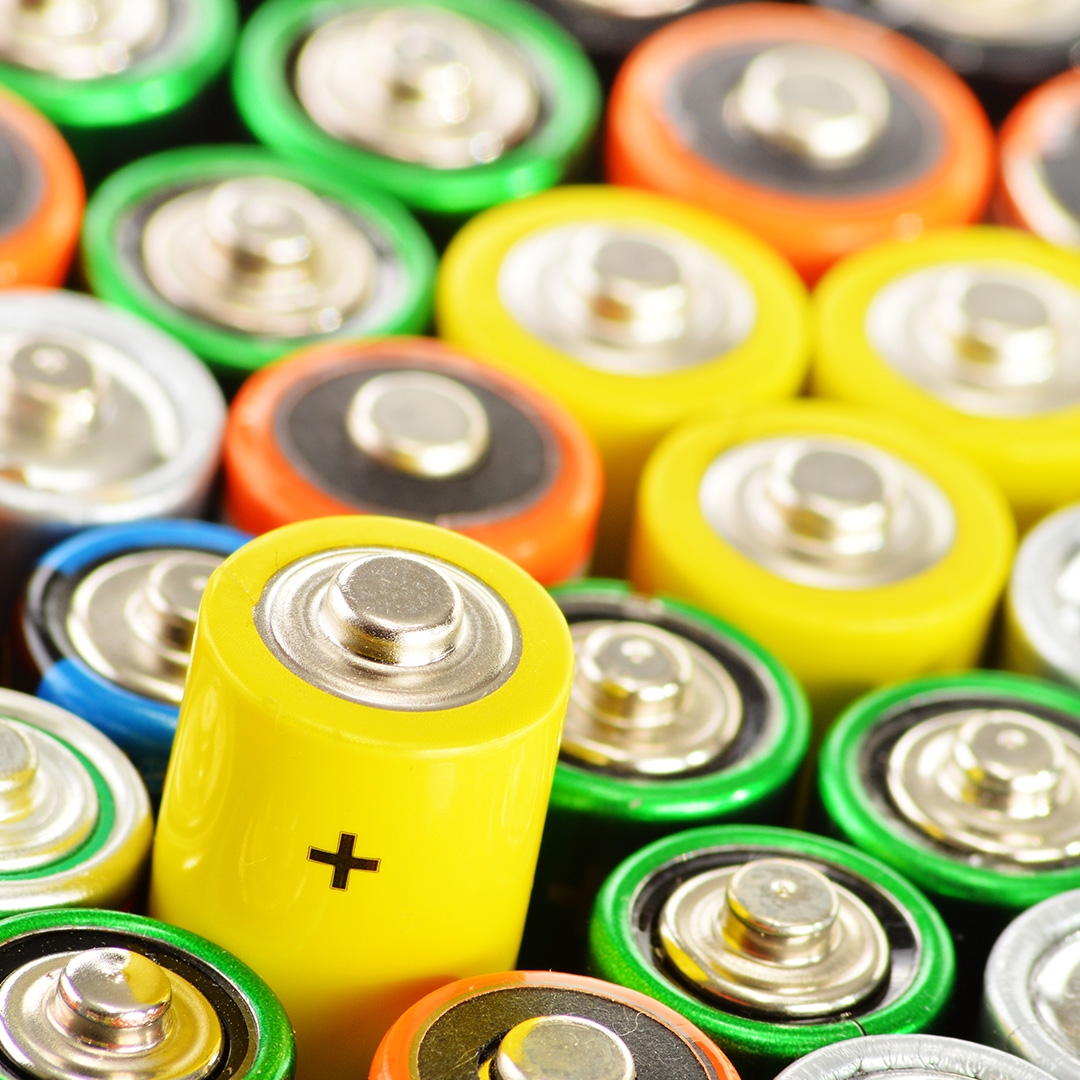 Register now for April 7 webinar
Register now for April 7 webinarJoin the ECS National Capital Section webinar on April 7, 2023, at 1200h ET with Dr. Chunsheng Wang from the University of Maryland presenting “Electrolyte Design for Li-ion and Li Metal Batteries.” Registration is free!
Register now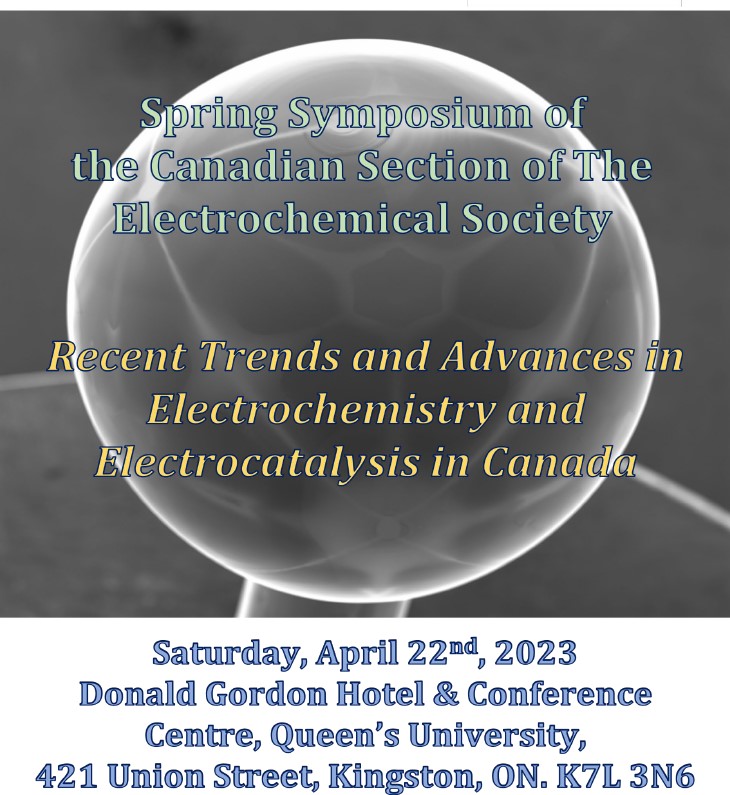 Spring symposium on April 22, 2023
Spring symposium on April 22, 2023 Join the ECS Canada Section Spring Symposium, Recent Trends and Advances in Electrochemistry and Electrocatalysis in Canada, on April 22, 2023, at the Donald Gordon Hotel and Conference Centre at Queen’s University in Kingston, ON. Registration for the event includes access to all sessions, a continental breakfast, buffet lunch, and a reception.
Download programRegister now
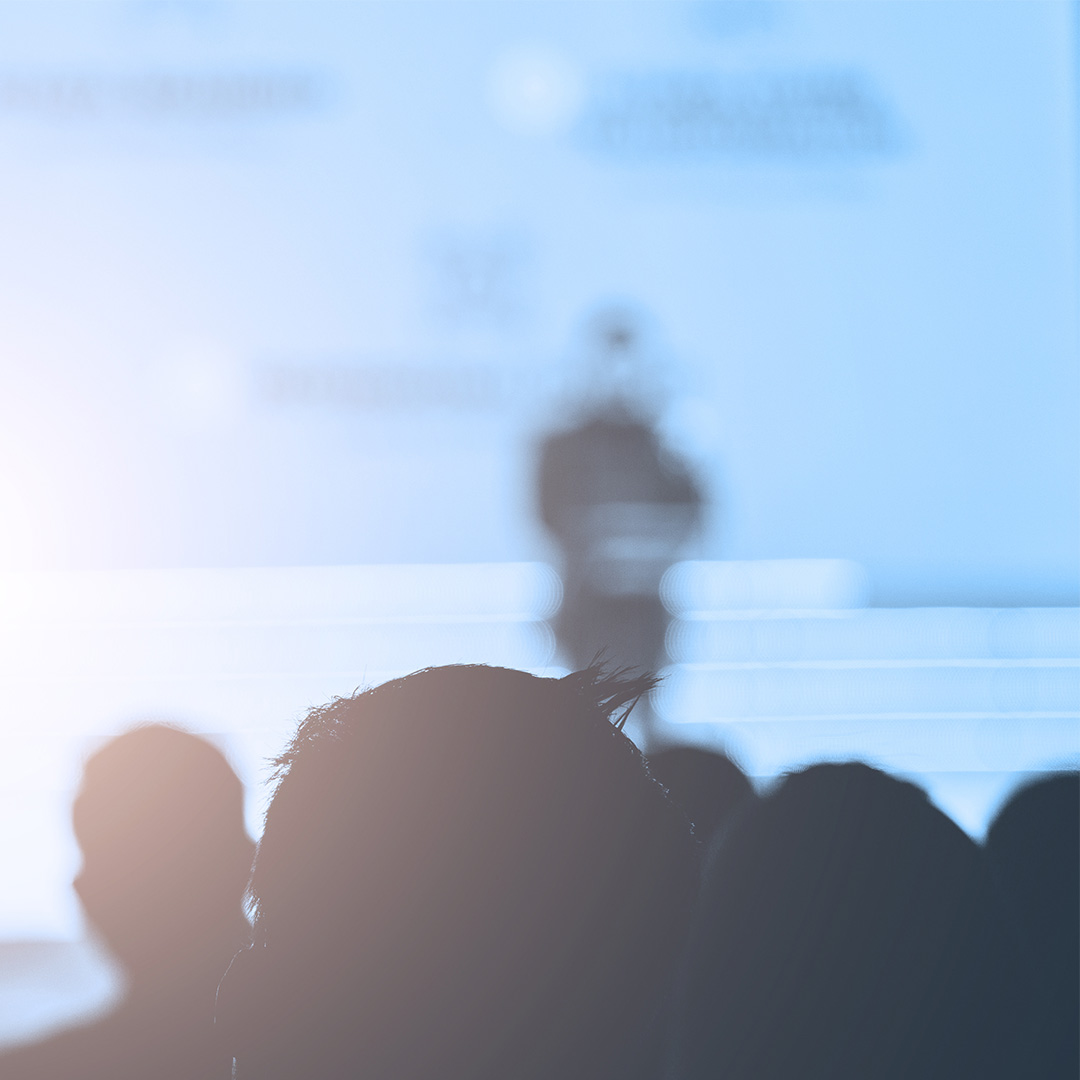 April 17 event focuses on “Professional Paths to Becoming an Electrochemist”
April 17 event focuses on “Professional Paths to Becoming an Electrochemist”Join the ECS Twin Cities Section for the Advances in Electrochemistry Symposium on April 17, 2023, in Minneapolis, MN. The event includes a dinner speaker, electrochemistry panel, and student poster session. The topic of the Electrochemist Lightning Round Panel is “Professional Paths to Becoming an Electrochemist.”
Students are invited to attend and meet regional industrial chemists, technology start-ups, and academics. Submit abstracts for consideration in the Poster Session. Students whose posters are accepted participate in the event for free.
Submit your abstractTo attend and present a poster, submit your name, title, and abstract
Poster abstracts submission deadline: March 31!
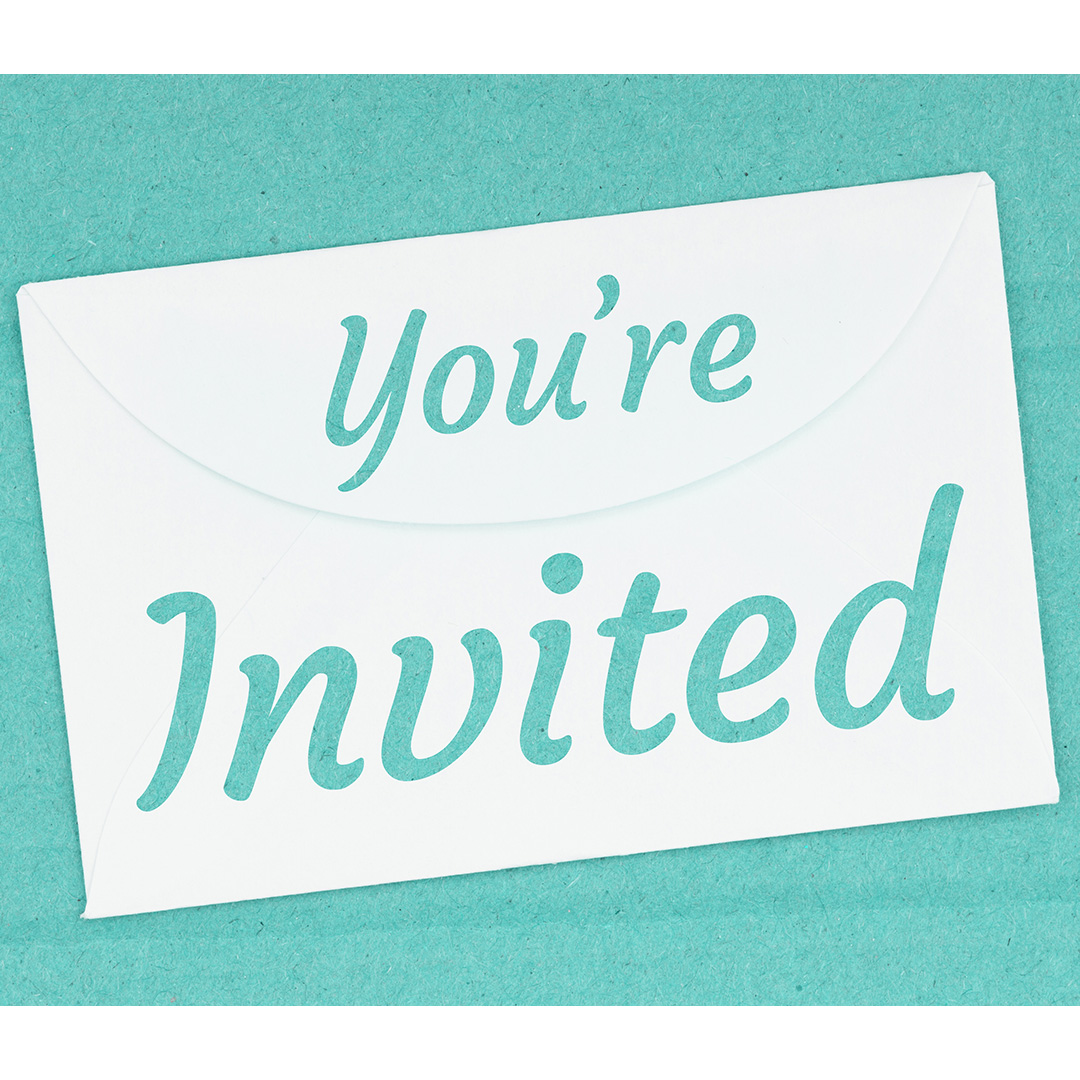 ECS exhibits and sponsors event
ECS exhibits and sponsors eventYou are invited to attend the first Bioelectrochemical Society meeting outside Europe. The meeting brings together scientists and engineers with an interest in advancing (bio)electroanalysis techniques from theory to application. The in-person event is sponsored by The Electrochemical Society which will exhibit there. Be sure to stop by our booth!
Abstracts are due March 10!
Learn more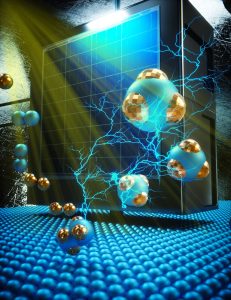 Reza Nazemi
Reza Nazemi
Assistant Professor
Department of Mechanical Engineering and
School of Advanced Materials Discovery
Colorado State University
Date: March 15, 2023
Time: 1300–1400h ET
Sponsors: BioLogic and Gamry Instruments